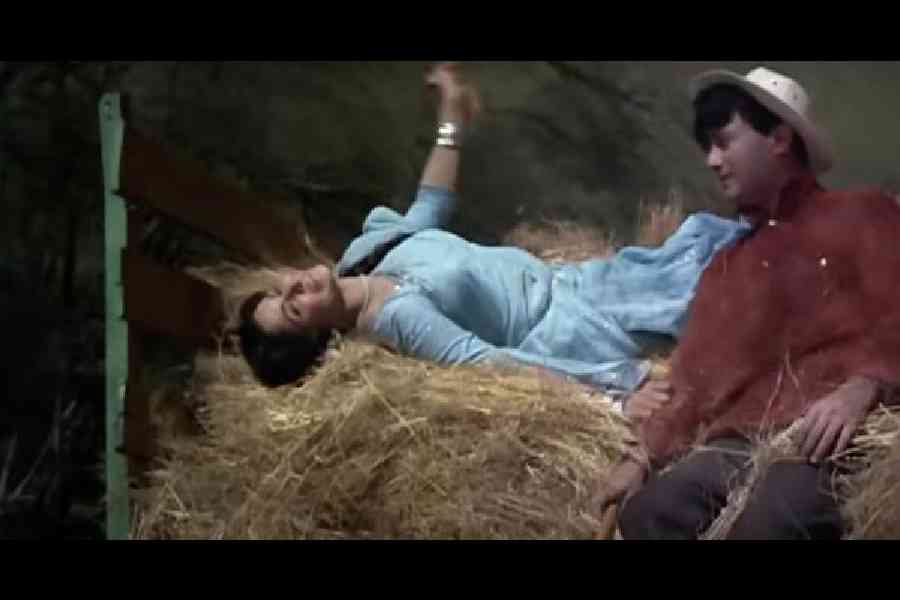Aaj phir jeene ki tamanna hai by Lata Mangeshkar
It was woke when woke wasn’t even a thing. A joyful song of rebellion. A pure desi feminist anthem that’s 60 years old.
Composed by S.D. Burman for Vijay Anand’s Guide (1965), Aaj phir jeene ki tamanna hai is a part of a magnificent soundtrack. Even by S.D.’s high standards, every song of the film is a gem, with sparkling lyrics by Shailendra. Think Gaata rahe mera dil, Piya tose naina lage re, Tere mere sapne ab ek rang hain, Din dhal jaye.... Still on air, on playlists, on reality TV shows.
And yet, Aaj phir jeene ki tamanna hai, with its unusual tempo and echoes of Raag Bhairavi, stands out. As an idea. In execution.
In the Sixties Bollywood, where women’s songs were mostly about coy love, high-pitched heartbreak, over-the-top maternal outpourings and tearful piety, Aaj phir jeene ki tamanna hai spoke about a woman breaking free.
Society blinked and gaped. Breaking free from what? Not many who watched the film could wrap their heads around the fact that a woman, Waheeda Rehman’s character Rosie, chose to walk away from a bad marriage to embrace creativity and love — in that order — and was deliriously happy about it.
Even Lata admitted later that she wasn’t convinced about the song at first. Of course, being the genius she was, she sang it with the right amount of chutzpah and feeling.
If you hear the song as a standalone, the unapologetic lyrics are striking:
Kaanto se kheech ke yeh aanchal/ Tod ke bandhan bandhe paayal/ Koi na roko dil ki udaan ko/ Dil woh chalaa... aaa aaa aaaa
Aaj phir jeene ki tamanna hai/ Aaj phir marne ka iraada hai / Aaj phir jeene ki tamanna hai/ Aaj phir marne ka iraada hai.
It takes a special man to write lines like these for a woman. Shailendra was that man. The poet behind some of Bollywood’s most enduring numbers like Awaara hoon (Awaara, 1951), Pyar hua iqraar hua and Mera joota hai Japani (Shree 420, 1955) and Aaja re pardesi (Madhumati, 1958), Shailendra was born Shankardas Kesarilal on August 30, 1923, in a Dalit family of Bihari migrants in Rawalpindi, now in Pakistan.
Around 1947, Shailendra started his career in Mumbai, then Bombay, as an apprentice in the Indian Railways. He also became a member of the Left-wing Indian People’s Theatre Association and started writing and reciting poems at various events. It was in one of those events that a young filmmaker by the name of Raj Kapoor spotted the firebrand poet, who, thanks to his IPTA leanings, was initially suspicious of the movies.
But he capitulated, and Hindi film music got a superstar. Shailendra’s lyrics blazed through the Fifties and Sixties. But the same movies that made him, unmade him. He produced Teesri Kasam in 1966, which flopped. He died of heartbreak the same year, aged 43.
Showbiz tragedies sometimes find redemption. Shailendra’s flop film is now regarded as a classic, the songs written by him enjoy enduring appeal.
Aaj phir jeene ki tamanna hai was reused in the early Eighties dud Qayamat and, more recently, creatively reimagined in Bholaa and Rocky aur Rani kii Prem Kahaani.
But nothing beats the original. Freedom, on song.










